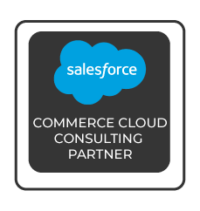Importance Of Salesforce For Manufacturing Industry
Manufacturing is now one of the fastest-growing industries, bringing quality business opportunities for businessmen. With new and existing consumers, manufacturers have big growth potential.
However, this sector must adapt faster to keep up with operational changes. Most manufacturers still work with old processes that Salesforce Clouds can easily implement and streamline.
The Salesforce platform is successful for manufacturing organizations that want to benefit from digital transformation. As a world-renowned Customer Relationship Management platform, Salesforce Partners helps manufacturers gain a competitive edge through ongoing improvements and innovations.
Why Manufacturers Are Using CRMs?
During the COVID-19 pandemic, several global events, and supply chain disruption, manufacturers found the importance of quality customer experience. The product delivery process, from dispatch to post-delivery interactions, is important regardless of the product or durables.
CRM solutions handle interpersonal processes, while ERP solutions manage essential manufacturing queries.
Manufacturing enterprises use CRM systems’ lead conversion, sales satisfaction functionality, and forecasting to ensure all processes run seamlessly externally and internally.
Why is Salesforce CRM Popular?
Salesforce Solutions is not just popular; it’s a trendsetter. It’s known for offering exceptional customer-centric solutions across diverse industries. Its popularity is due to its flexibility and openness to all sorts of personalization.
With a vast developer community and open API, Salesforce is a favorite among various industries, including manufacturing.
As long as we’re talking about the manufacturing sector, it’s easier to customize a Salesforce CRM for their everyday operations.
Top Benefits of Using Salesforce for the Manufacturing Sector
Now, let’s have a look at the perks of using Salesforce CRM in the manufacturing industry:
● All-In-One Solution
Salesforce offers a suite of tools for sales, collaboration with partners, eCommerce, and post-sale service. Its eCommerce tool lets you sell directly to customers and provide post-sale service with Service Cloud and Field Service Lightning.
Salesforce offers comprehensive training and specialized partners, allowing for streamlined business operations without requiring a dedicated team.
● Maximize Sales and Lead Conversion
Salesforce’s CRM software streamlines lead management and sales operations for manufacturing companies. The platform enables efficient lead prioritization, unified account management, and seamless communication for the sales team.
Using analytics and CPQ capabilities, companies can automate marketing activities, drive upsells and cross-sells, and simplify quotation management.
● Easily Accessible
Salesforce offers an efficient CRM solution on the cloud for manufacturers, allowing seamless integration with business applications. With an internet connection and a digital device like a computer, laptop, mobile phone, or tablet, all your apps are easily accessible.
You can accomplish everything remotely if you need to verify inventory status or monitor an order’s shipment.
● Increase Productivity and Efficiency
Salesforce consultancy solutions prove highly beneficial for maintaining efficient productivity within the manufacturing sector. They help sales teams make informed plans and allow companies to prepare production schedules well in advance.
Using historical customer data allows companies to estimate product quantities and production timelines accurately. The user-friendly Salesforce 360 interface seamlessly integrates into existing processes.
● More Sales and Revenue
Salesforce’s role in converting more leads naturally leads to increased sales and revenue generation for manufacturing companies. Understanding customer purchasing patterns is key to successful product upselling or cross-selling.
Salesforce’s CRM intelligence effectively displays and promotes the most relevant products to customers during their purchases, with the potential for further leveraging customer data to drive sales.
● Improve Sales & Marketing Efforts
Salesforce tools help capture and manage leads, including web forms, to convert website visitors into potential customers.
Salesforce Marketing Cloud enables manufacturers to create, send, and track email campaigns with features like automation and templates. Salesforce integration lets manufacturers monitor social media, engage with customers, and track social media leads.
● Powerful Integrations
Manufacturing companies use various apps for different purposes, which can scatter information across different systems. With Salesforce CRM implementation, you can create an efficient and scalable powerhouse that maximizes your software investments.
Effective manufacturing CRM solutions can connect with almost anything, including ERP, marketing automation, field service apps, phone systems, social media, and older databases.
APIs simplify connections to leading CRM, ERP, and legacy systems. By integrating Salesforce with Market, financial operations, SAP ERP, ServiceNow, and other apps, manufacturers can create a connected experience.

Most Beneficial Salesforce Clouds for Manufacturers
Salesforce B2B Commerce Cloud
Salesforce B2B Commerce Cloud is a powerful e-commerce solution for manufacturers, helping them connect with customers and enhance revenue and efficiency. Integrating with Salesforce Lightning significantly improves e-commerce management for manufacturing companies. Key features include:
- Create a branded B2B e-commerce site using Salesforce 360.
- Offer personalized shopping with product recommendations and custom pricing.
- Use predictive intelligence for upselling and cross-selling.
- Connect with customers through mobile commerce.
- Improve operational efficiency with streamlined order management and payments.
Salesforce Sales Cloud
Salesforce Sales Cloud is a valuable tool for sales professionals. It’s particularly essential in addressing challenges related to understanding salespeople’s activities and making accurate forecasts.
Sales Cloud effectively supports lead management, opportunity management, forecast management, contact management, and more. Regardless, it will improve your sales cycle.
Salesforce Manufacturing Cloud
Designed specifically for enterprise-level manufacturing companies, Salesforce Manufacturing Cloud offers a range of key features, including:
- Demand and production forecasting.
- Sales agreements management.
- Prebuilt data models encompass objects, processes, and frameworks.
- Embedded dashboard templates.
- Workflow automation.
Salesforce Manufacturing Cloud is available in three versions: one based on Salesforce Sales Cloud, another on Salesforce Service Cloud, and the final version combining features from both.
Salesforce Marketing Cloud
With Salesforce Marketing Cloud, manufacturers can leverage their CRM data to make informed decisions regarding their products. You can create Salesforce solutions campaigns and targeted outreach to the right customers and prospects.
With Marketing Cloud, you can automate messaging to multiple clients or send personalized messages. The tool also supports predictive analysis, promotional campaign creation, and analytics tracking with automation.
Can You Use Other Salesforce Clouds Solely for the Manufacturing Industry?
Salesforce tools primarily support sales organizations, making them suitable for manufacturing companies looking to enhance their sales processes. While Salesforce Manufacturing Cloud offers advanced features, smaller companies with stricter budgets may prefer other solutions.
However, other Salesforce Clouds can help small and mid-size manufacturers improve operational efficiency and enhance customer experiences. These clouds provide a strong CRM foundation, with the option to add niche modules through AppExchange or Salesforce’s developer community.
If you don’t see Salesforce Manufacturing Cloud as a right fit for your business’s budget, then don’t stress. With other Salesforce 360 solutions and partnering with the right Salesforce Consulting firms, you can get the most benefits and scale with time.
Conclusion
Salesforce CRM is a robust cloud-based application that has the potential to take your business to new heights. Salesforce 360 excels in nurturing and maintaining relationships with your contacts through comprehensive contact management capabilities.
Are you eager to explore the diverse ways in which Salesforce CRM solutions can optimize your manufacturing processes? If so, Innovadel invites you to converse with our expert Salesforce Implementation Partner. With their extensive expertise in Salesforce, our consultants can collaboratively guide your business toward maintaining its competitive edge in a highly competitive manufacturing market.
Contact us today and get top-notch health checks and consultancy from our experts!
FAQs
Why is CRM important in manufacturing industry?
A customer relationship management (CRM) system is an excellent resource for manufacturers. It enables them to strengthen connections with customers and generate precise sales predictions. Consequently, this helps in more effective organization and oversight of their operations.
Can Salesforce integrate with existing systems in a manufacturing company?
Yes, Salesforce can integrate with various existing systems such as ERP, order management systems, supply chain management, and inventory, ensuring seamless data flow and improved operational efficiency.
Can Salesforce help in product lifecycle management?
Yes, Salesforce can assist in managing product lifecycles by providing insights into product performance, customer feedback, and market trends, enabling better decision-making and product development
What is the overall impact of Salesforce on the manufacturing industry?
Salesforce transforms the manufacturing industry by enhancing operational efficiency, improving customer and partner relationships, optimizing sales and service processes, and enabling data-driven decision-making.
Related Posts
If you enjoyed reading this then please explore our other Articles below








